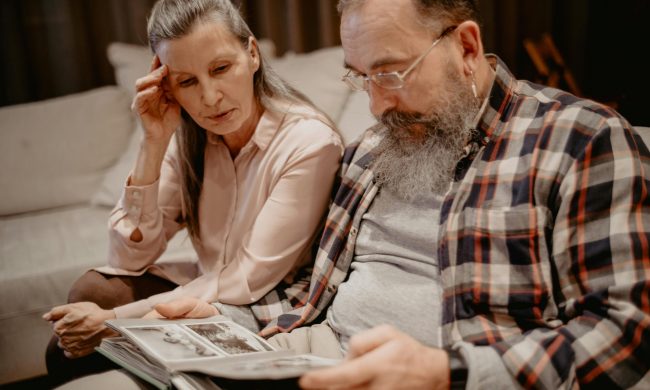The Pain and Potential of the Midlife Years
By Homaira Kabir | Updated April 3, 2024 | Reviewed by Hara Estroff Marano

It’s the death of the self we knew and a search for the self-in-waiting.
Some 2500 years ago, the Greek philosopher Heraclitus said the only constant in life is change. Fast forward to today’s chaotic and uncertain world and change is on steroids. Millions of us are in constant transition in some aspect of our lives.
For most of us, the midlife years are when many transitions happen all at once. Kids leave home, parents need caregiving, retirement begins, or careers start feeling purposeless. There’s an unraveling of our previous lives and the opportunity to redefine ourselves in whole new ways.
I don’t know about you, but I haven’t found the process of redefining as exciting as it was during that other major transition of life, coming of age. There was an energy, a natural optimism inherited from our hunter-gatherer ancestors. I see this in my young adults when they talk about their future plans. Sure, they wonder about what the world will be like in 20 years or the grim prospects for millennials. But still, they can leave those fears on the back burner and feel excited about the possibilities that life presents.
In midlife, the back burner becomes life, because life no longer extends indefinitely before us. Death—that thing that happened to other people—feels real and looms somewhere in the future. Our plans no longer have the open-ended nature they once did. It takes effort to not live in the rear-view mirror. And with that comes a certain longing, a nostalgia for what once was. However good our current lives may be, we still remember the past as the good old times and feel the sadness of not experiencing them again. Many goodbyes are no longer au revoirs. They’re adieus.
The past isn’t just bittersweet, though. For most of us, it also contains regrets of what could have been. Even our wisest choices were at the expense of other paths, and we feel the sadness of our unlived lives. If those choices were made because of lack or inadequacy, there’s also shame regarding what’s still unresolved in our lives. It all comes to the fore in midlife because life doesn’t reward us the way it used to. We live in a culture of ageism. The messages we receive about growing older tend to morph into a harsh inner critic; we’re hardest on ourselves when perhaps we need ourselves the most.
I recognize my resistance to admitting my slowly diminishing abilities and capacities. I don’t hear as well as I used to but avoid asking people to repeat themselves. I feel clumsy when I need to toggle between eyeglasses and pretend I can see what someone shows me from afar even though I have my reading glasses on. I feel this the most when I’m around my children. I look at us in the mirror and wonder when I started looking like my mother. I laugh along at their jokes even though I’m outdated by some of their humor. And sometimes I notice myself pushing my way into their conversations, trying to advise or add something of value.
It’s a crisis of insignificance. It’s finding a foothold in a world that tells me I’m no longer relevant.
As I go through this tunnel, I’ve begun to see the light at the end. It’s reminding me that I’ve entered the stage that we all long for as we go through life. The earlier stage was about redefining myself according to the world’s wishes, what Jungian analyst James Hollis described as the ego/world axis of identity.
This stage is about entering a new relationship with myself, to move toward the ego/self axis of identity. The questions and self-doubt are the humbling of an ego that placed itself at the center of the world. The pain is the angst of living in the gap between who I am and who I’ve become. Such constitutes the midlife crisis—a call to embrace the true self underneath the acquired personality and thus become who we were always meant to be.
If you relate, you may find this 4-part process helpful:
1. Allow
Welcome every emotion that comes up without judgment. Give each a seat in your inner home, as the Persian poet Rumi writes in The Guest House. Treat them with compassion so they don’t need to shout to make themselves heard.
2. Attune
Inquire what the emotions are asking of you. What are they reminding you of? What values, dreams, aspirations, or passions did you set aside to come back to later, suppress because you were told they were wrong or because they weren’t rewarded by the world?
3. Align
Who are you being called to become to honor these longings? What do you need to change to honor your longings in a way that’s right for your life at this time? What are your growth edges? What are the skills or capacities you’ll need to build?
4. Action
What’s the one action that will have the greatest impact on your life and help you live with integrity with yourself? Remember, change is a gradual process; trying to change everything at once never works in the long run. Small and steady does indeed win at life’s race.
For me, this has meant connecting to the need to untether myself from motherly responsibilities and learn to trust my parenting over the past couple of decades. It has meant uncovering the truth of the serenity prayer and experiencing the joy that comes from letting go of what I cannot change.
It has meant the freedom to tend to the life that I am ready to live through me.
